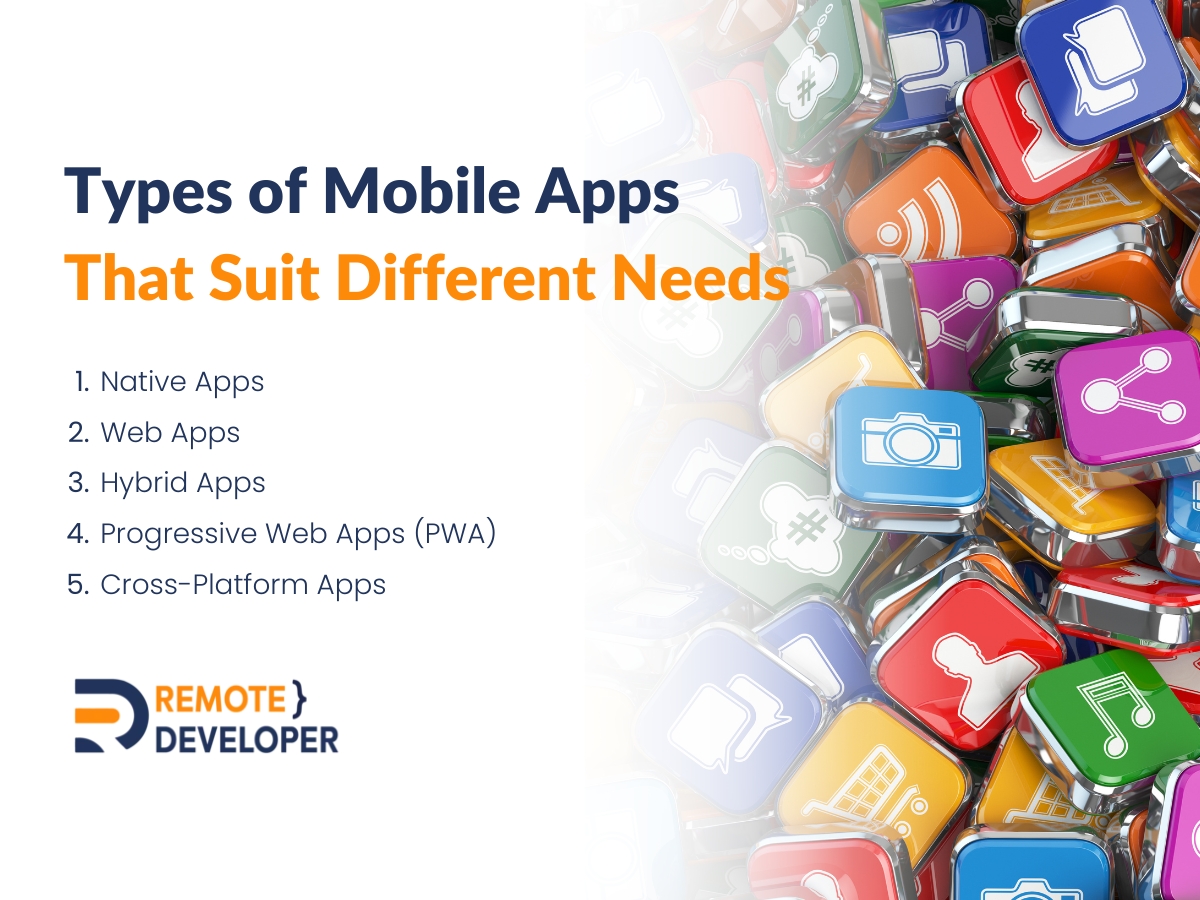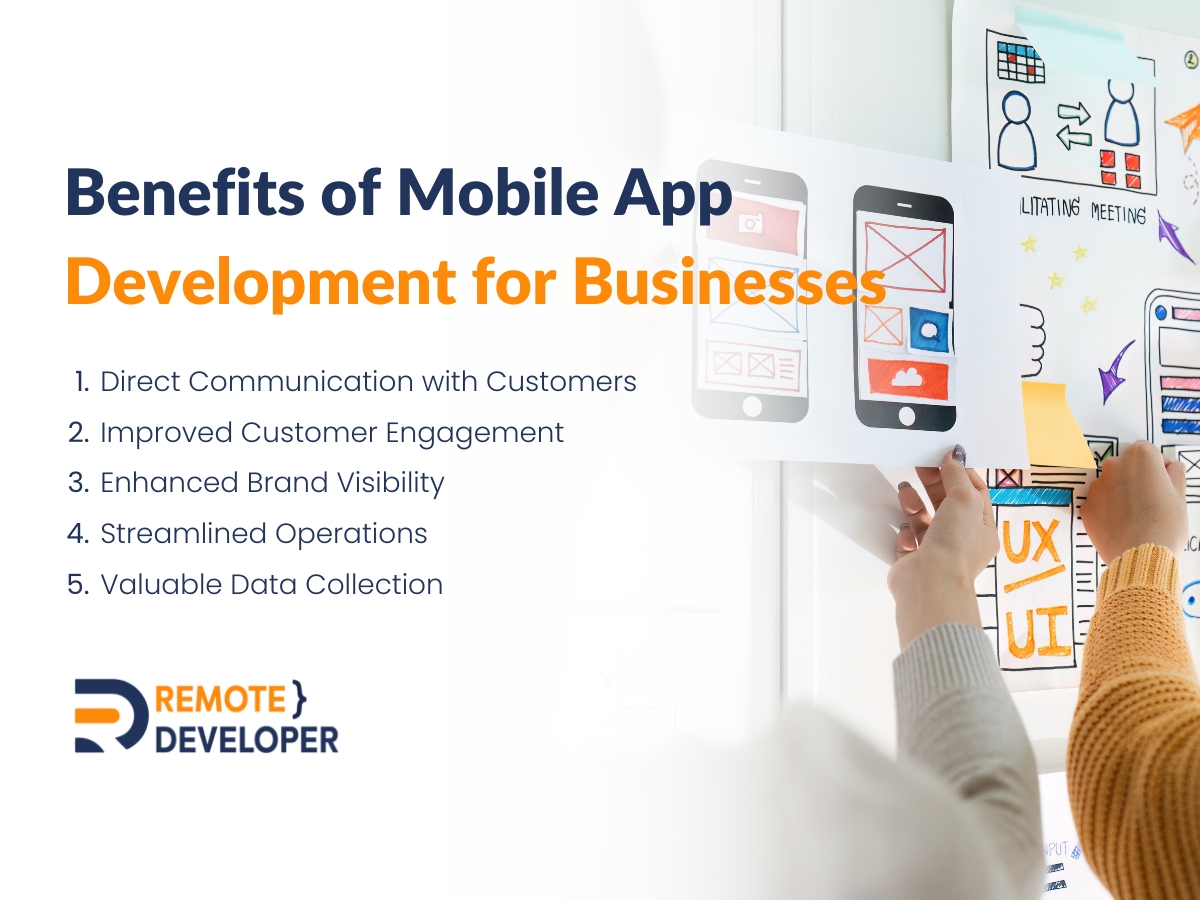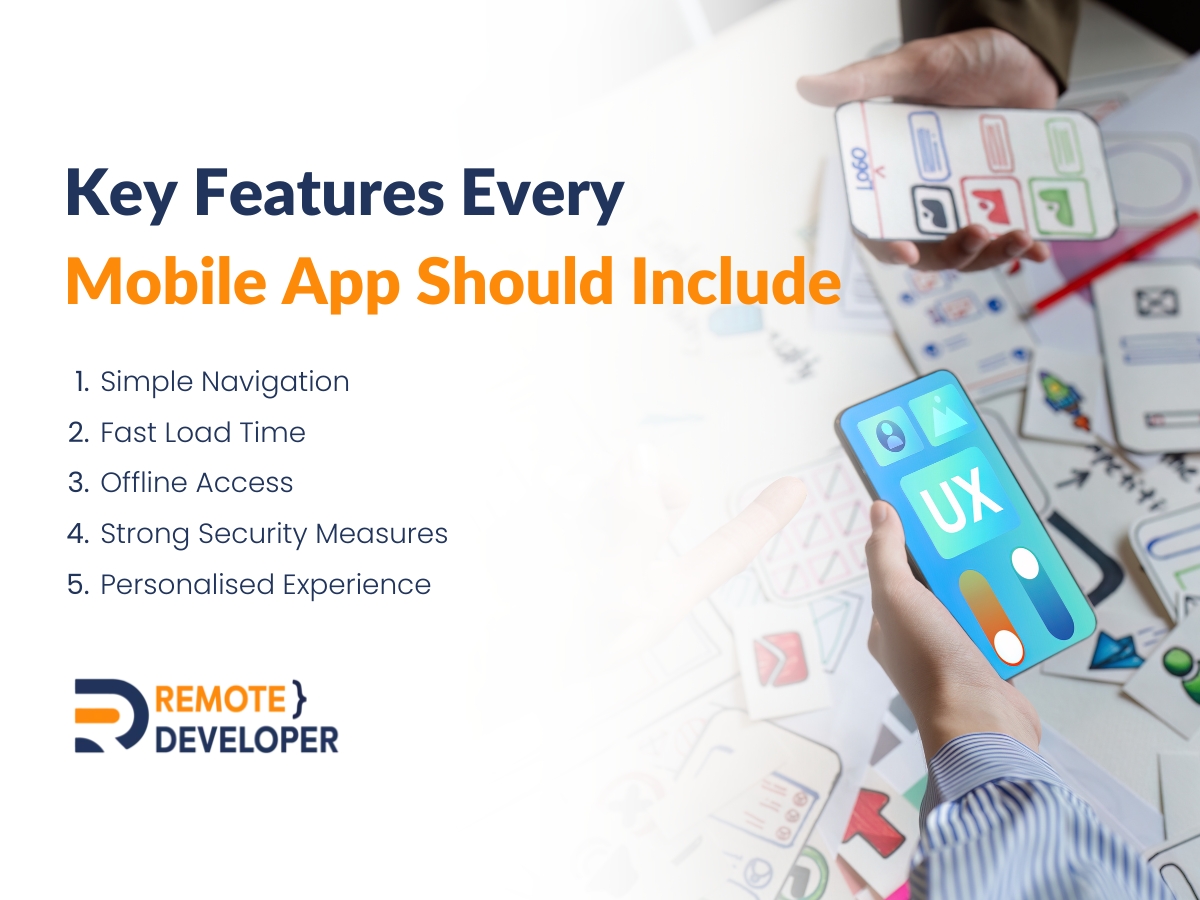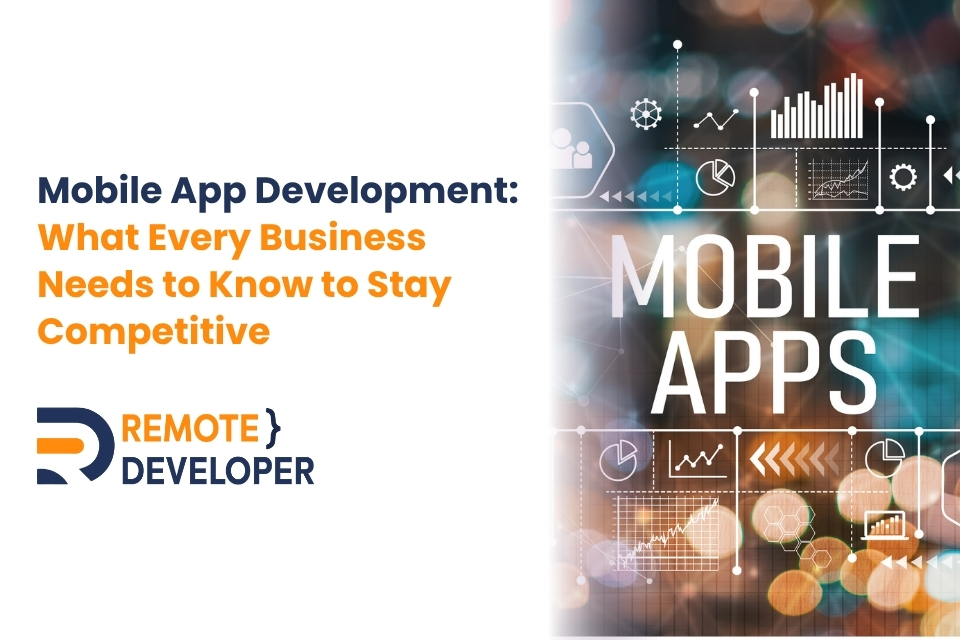Mobile app development is shaping how brands connect with customers. With people spending more time on their phones than ever, apps have become a primary way to interact, shop, and access services. Businesses that offer a seamless app experience can build stronger relationships and improve customer loyalty. Whether you’re a start-up or an established brand, having a mobile app is no longer just a nice-to-have.
More than just convenience, mobile apps offer unmatched engagement and reach. They sit on your customer’s home screen, acting as a direct bridge to your business. When done right, mobile apps can improve user experience, increase conversions, and support your growth goals. That’s why investing in mobile app development makes solid business sense.
What Is Mobile App Development?
Mobile app development is the process of creating software applications that run on mobile devices. It involves designing, building, testing and launching apps for platforms like iOS and Android. These apps can range from simple tools like calculators to complex platforms for banking, shopping or health tracking. Each app is built to solve a problem or make life easier for users.
Behind the scenes, mobile app development combines programming languages, user interface design and backend infrastructure. Web developers and other specialists work with tools and frameworks to ensure the app is fast, secure and user-friendly. The goal is to deliver an experience that feels smooth and intuitive. Great apps are the result of smart planning and thoughtful execution.
Types of Mobile Apps That Suit Different Needs
Choosing the right type of mobile app is key to meeting your business goals and budget. Understanding the differences helps you pick the perfect fit for your needs and audience.

1. Native Apps
Native apps are built specifically for one platform, like iOS or Android. They use the device’s full capabilities for the best performance and user experience. Businesses often choose native apps for speed and reliability. If you want a smooth and polished app, native is a solid option.
2. Web Apps
Web apps open in a mobile browser and don’t need to be installed. They cost less and are quicker to build than native apps. For basic features and tight budgets, they’re a smart choice. A good web development service can help make them fast and easy to use on any device.
3. Hybrid Apps
Hybrid apps combine elements of both native and web apps. They’re built with web technologies but run inside a native container. This means one codebase can work on multiple platforms. If you want to save time and money without starting from scratch, hybrid apps are worth considering.
4. Progressive Web Apps (PWA)
PWAs offer app-like experiences directly through web browsers. They can work offline, send notifications and load quickly. Businesses like them for their low cost and wide reach. A PWA can be a great first step into mobile for those not ready for a full app.
5. Cross-Platform Apps
Cross-platform apps are developed to run on both Android and iOS from one codebase. They’re efficient and reduce development time. Tools like Flutter or React Native make this approach popular among businesses. If speed to market is a priority, cross-platform development is a smart strategy.
Benefits of Mobile App Development for Businesses
Mobile apps are more than just digital tools. They offer powerful ways to connect with customers, improve operations and grow your business smarter.

1. Direct Communication with Customers
Mobile apps let you send personalised updates and notifications straight to users. This helps build stronger relationships and keeps your brand top of mind. You can promote sales, share news or offer support in real time. That kind of access builds customer trust.
2. Improved Customer Engagement
Apps make it easier for customers to interact with your brand. Features like chat support, in-app purchases or feedback forms encourage regular use. The more value your app provides, the more loyal your users become. It’s a win-win for both experience and retention.
3. Enhanced Brand Visibility
Having your app on a customer’s phone boosts your brand presence. Every time they unlock their device, your logo is right there. This constant visibility helps reinforce brand identity. It’s an effective way to stay relevant without being intrusive.
4. Streamlined Operations
Apps can automate tasks like booking, payments or customer service. This reduces manual work and improves efficiency. Businesses save time and money while offering faster service. It’s a smart way to scale without adding extra workload.
5. Valuable Data Collection
Apps provide insights into user behaviour and preferences. You can see what features they use most, how often they engage and where they drop off. These metrics help you make better decisions and tailor your offerings. Data-driven strategies lead to better results.
Key Features Every Mobile App Should Include
Building a successful mobile app means focusing on features that truly matter to users. These key elements ensure your app is not only useful but also keeps people coming back.

1. Simple Navigation
Users should be able to move through your app with ease. Clear menus and intuitive layouts reduce frustration. The faster someone finds what they need, the more likely they’ll stick around. Great navigation keeps users coming back.
2. Fast Load Time
Speed plays a crucial role in keeping users engaged. Apps that take too long to load often get uninstalled within minutes. Make sure your app runs efficiently on different devices and networks. A fast, seamless experience builds trust and retention.
3. Offline Access
Letting users access basic features without an internet connection adds value. This can be a game changer for people on the go or in remote areas. It shows you’ve thought about real-life usage. Offline functionality boosts your app’s reliability.
4. Strong Security Measures
Your app should keep user data safe with secure logins and encryption. Cybersecurity helps prevent threats and protects personal or payment details. Trust builds loyalty, so users feel confident using your app. Regular updates and testing are key to staying secure.
5. Personalised Experience
Apps that adapt to user preferences feel more engaging. Offer custom settings, saved history or personalised recommendations. Tailoring content makes users feel understood. Personalisation improves satisfaction and loyalty.
Choosing a Mobile App Development Team That Fits Your Needs
Finding the right development partner makes a big difference in your app’s outcome. Look for a team with proven experience, solid communication and a clear understanding of your goals. Check their portfolio, client reviews and tech expertise. A good partner will guide you through every stage with confidence.
It’s also important to consider post-launch support. Make sure the team offers ongoing maintenance, performance checks and timely updates. A collaborative working style helps turn your vision into reality. The right fit leads to a better app and a smoother journey overall.
Final Thoughts
Mobile app development is more than a trend. It’s a powerful tool that helps businesses connect, grow and compete in a fast-paced market. With the right strategy, your app can attract new customers and strengthen your brand. It’s a long-term investment that pays off.
Whether you’re starting small or aiming big, a well-built mobile app opens up endless possibilities. As user habits evolve, apps will remain at the centre of digital experiences. Now is the time to embrace mobile and stay ahead of the curve. Your next growth opportunity could be one tap away.
Ready to take your business to the next level with a custom mobile app? Contact us today to start your mobile app development journey and stay ahead of the competition.

